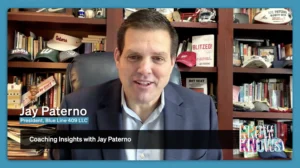Despite Initial Reluctance, AI Will Likely Overcome Resistance in the Entertainment Industry
A recent agreement between the Writers Guild of America (WGA) and leading studios and streaming platforms marks a significant moment in the entertainment industry, especially regarding the use of Artificial Intelligence (AI) in scriptwriting. This deal, which notably includes measures to limit AI-written scripts, highlights a crucial debate at the heart of the entertainment industry about how we balance technological advancement with the preservation of creative integrity and labor rights.
This question was further underscored by the Screen Actors Guild‐American Federation of Television and Radio Artists (SAG-AFTRA) achieving similar concessions, pointing to a broader industry trend.
Observing these developments, it’s hard not to draw parallels with the initial resistance and eventual widespread adoption of streaming technology. Could AI in content creation follow a similar path to acceptance and integration as streaming did?
Joanna Dodd Massey, Ph.D. is an Independent Director at the Hollywood Foreign Press Association and former communications leader at CBS, Discovery Inc., Lionsgate, and Condé Nast. She has a background that spans technology, psychology, and media and shares her expert opinion on this topic, saying she believes AI will get accepted just like streaming tech eventually did.
Joanna’s Thoughts
“So yes, there is some of that push-pull, just like we had back when streaming was coming onto the scene, but the new technology eventually won out, and I believe that the AI new technology in this case will eventually win out. I think the concessions extracted by the Writers Guild from the studios and networks in terms of the use of AI or lack of use of AI in the creative process are important, but I also think that we will relatively quickly see that they become irrelevant.
And, the reason I say that is because this situation with AI coming onto the scene so quickly is very reminiscent of when streaming started in the industry. Back then, we put movies in movie theaters, we put TV shows on television networks, TV shows ran across a cable provider who provided you with your TV channels, and then all of a sudden, here come the streamers.
The streamers have movies, the streamers have TV shows, and they bypass the cable operators, and everyone resisted it. There were deals made to X out streaming, there were deals that already existed where studios and networks tried to reinforce the inability to put programming on streaming. Slowly but surely, everybody jumped on the bandwagon, and then we’re now to where we are today, which is in an all-streaming universe, practically.
Yes, television networks still exist, yes, we still have cable providers, but to a much lesser extent, and someday, those will become extinct. I think the AI and the proliferation of AI is the exact same thing. I can say, because besides sitting on corporate boards, I also have a PhD in psychology, human beings are hardwired to resist change. So what we’re seeing in the beginning of AI is resistance to change. We’re also seeing a lot of people standing up for their livelihood, for their fear of being replaced, for their intellectual property that they’ve already created.
So yes, there is some of that push-pull, just like we had back when streaming was coming onto the scene. But the new technology eventually won out, and I believe that the AI new technology, in this case, will eventually win out. And so it will evolve to a point where the deals that we have today will become completely irrelevant as AI takes over. And I think that it’s not a bad thing.
Some people are the type who jump on the front of the train of change and they drive it, and then there are other people who jump on the back of the caboose and get dragged by it. So, you know, in the past, Hollywood has been a mixture of, I’m getting on the train in the front, now I’m going to get on the middle, and then there’s a whole bunch of them that are in the caboose getting dragged by the change. Same thing will happen with AI, is my prediction.”
Article written by Sonia Gossai








